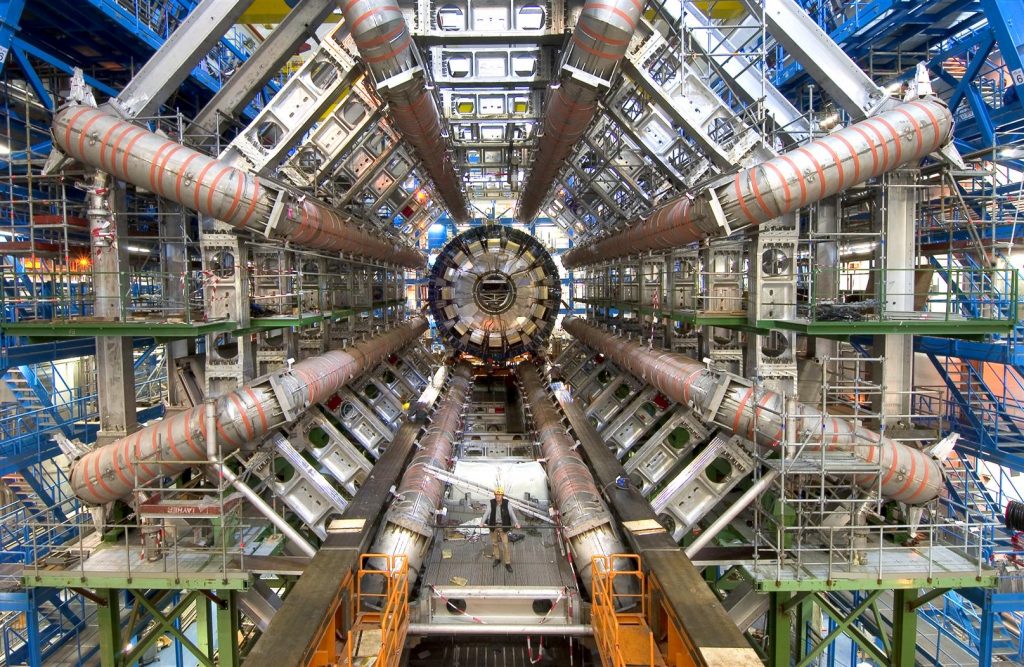Name: Research Infrastructure for Experiments at CERN
Institute: Institute of Physics of the Czech Academy of Sciences
Coordinator: Assoc. Prof Alexander Kupčo, Ph.D.; kupco@fzu.cz
Website
CERN-CZ develops new particle detection technologies, including their applications, primarily in the field of calorimetry and semiconductor tracking detectors. The technology scope of CERN-CZ comprises the development and construction of detectors, including radiation hardened semiconductor detectors, electronics, cryogenics, vacuum technologies, metrology, electronic and mechanical design, databases and the processing of extreme data volumes. In coordination with the Committee for Cooperation of the Czech Republic with CERN, an expert advisory board to the Ministry of Education, Youth and Sports, CERN-CZ also ensures representation and exercises the rights and obligations in CERN governing and advisory bodies, and in CERN experiments. Unique experimental equipment at CERN, constructed and operated with the assistance of CERN-CZ, allows the Czech research community to contribute to the world-class results in nuclear and particle physics produced at these facilities.
The ambitious CERN research programme and access to the most progressive technologies increase the attractiveness of educational and research institutions. Students and trained experts subsequently use acquired skills outside academia, increasing the innovative potential and competitiveness of companies. Czech companies annually obtain CERN contracts in the range of CZK 30–100 million. These benefits also go beyond the bare financial value, as the construction of technologically demanding devices stimulates innovation and their successful operation brings prestige to the companies and the Czech industrial sector. Czech companies have significantly contributed to the construction of CERN LHC experiments (e.g., silicon detectors, power sources, vacuum and optical components, steel, etc.) and the ongoing HL-LHC (High-Luminosity Large Hadron Collider) upgrade provides even further opportunities. Examples of the application of technologies in Czech industry include semiconductor detectors with applications in the cosmic industry, education and medicine, and scintillation detectors employed in electron microscopy and tomography.CERN-CZ organises the participation of the Czech research community in CERN (Conseil Européen pour la Recherche Nucléaire), located in Geneva, Switzerland. CERN operates the world’s largest particle accelerator – Large Hadron Collider (LHC) – and hosts experiments that study particle collisions at the highest energies. CERN coordinates and organises European research in the field and plays a world-leading role in the research of elementary particle physics and the properties of matter under extreme conditions. The aim of CERN-CZ is to support the participation of the Czech Republic in CERN experiments, primarily in the development, construction and operation of these facilities, including the operation of the local Czech RI, which is substantial for the detector R&D and production, as well as computing e-infrastructure for the data processing.
Societal and economic impacts
